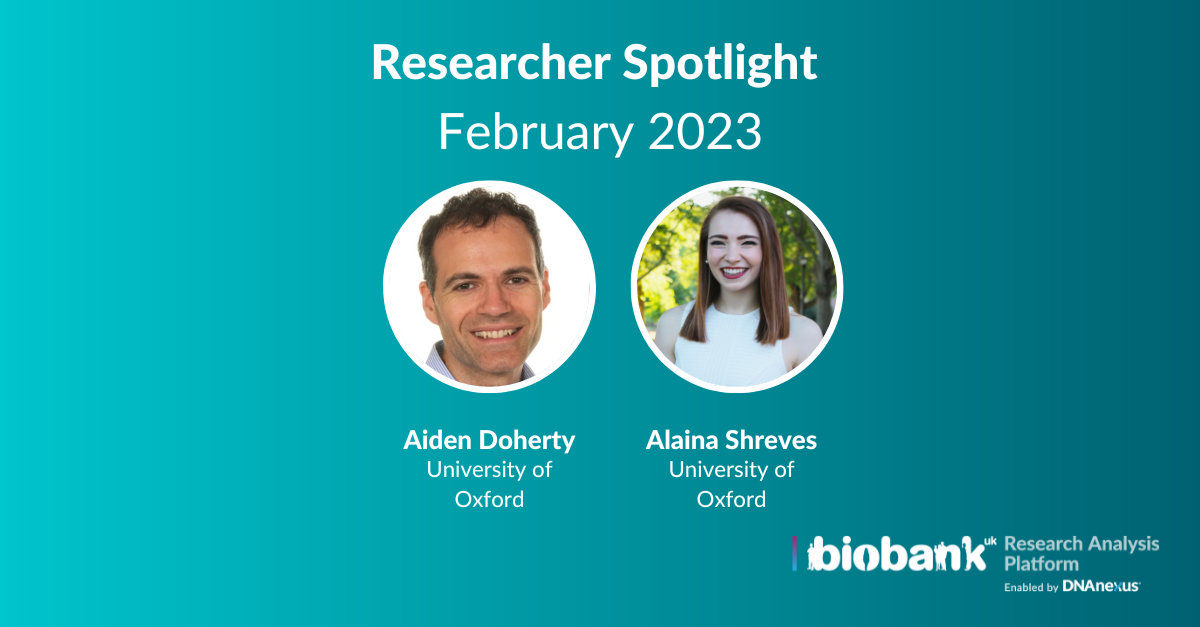The Monthly Researcher Spotlight is our new section highlighting the exciting work of the UK Biobank Research Analysis Platform user community. If you would like to be featured, email community@dnanexus.com.
This was originally published in the February 2023 UK Biobank RAP Newsletter. You can sign up for future installments here.

(left) Aiden Doherty
Professor of Biomedical Informatics
University of Oxford
(right) Alaina Shreves
DPhil Student, Population Health
University of Oxford & National Cancer Institute (US)
What are the focus and discovery highlights of your research?
My research group develops reproducible methods to analyse wearable sensor data in very large health studies to better understand the causes and consequences of disease. For example, we have developed methods to objectively measure physical activity in UK Biobank that are now actively used by researchers worldwide to demonstrate new associations with cardiovascular disease, depression, mood disorders, and others. These have allowed us to show that the lowest risk for a number of diseases in the UK Biobank cohort is seen at the highest level of accelerometer-measured physical activity, whether total, moderate-intensity, or vigorous-intensity. We have also developed machine learning methods to identify sleep and functional physical activity behaviours such as walking. In addition, we have discovered the first genetic variants associated with machine-learned sensor phenotypes. This work shows the first genetic evidence that physical activity might causally lower blood pressure.
What are some of the key questions that you are looking to answer using UK Biobank data?
One great example is a collaborative project led by Alaina Shreves, a first-year DPhil student in my research group. As a National Institutes of Health (NIH) Oxford-Cambridge Scholar, Alaina is pursuing a dual-mentored dissertation through the University of Oxford and the NIH in the US. Her project uses UK Biobank accelerometer data to investigate what types of physical activity are associated with lower cancer incidence. During her time at Oxford, she will use machine learning methods to quantify accelerometer-measured activities for cancer risk models. She also plans to implement two-sample Mendelian Randomization methods to explore potential causal effects between physical activity and cancer.
How has the UK Biobank Research Analysis Platform (UKB-RAP) helped you perform your research?
The UKB-RAP system has revolutionised how our research group interacts with UK Biobank data. Over 35 students at Oxford’s Big Data Insitute have now used this system to quickly access wearables, imaging, and genomics data to conduct reproducible epidemiological analysis across a range of disease areas. I couldn’t imagine going back to the old way of working with UK Biobank data.
Any tools or tutorials that you have developed that would be useful for the UKB-RAP community?
Rosemary Walmsley gave a fantastic tutorial on the analysis of accelerometer data a few months ago, accompanied by code that Alaina has extended (UKB-RAP wearables analysis tutorial).

.png)
.png)
.png)